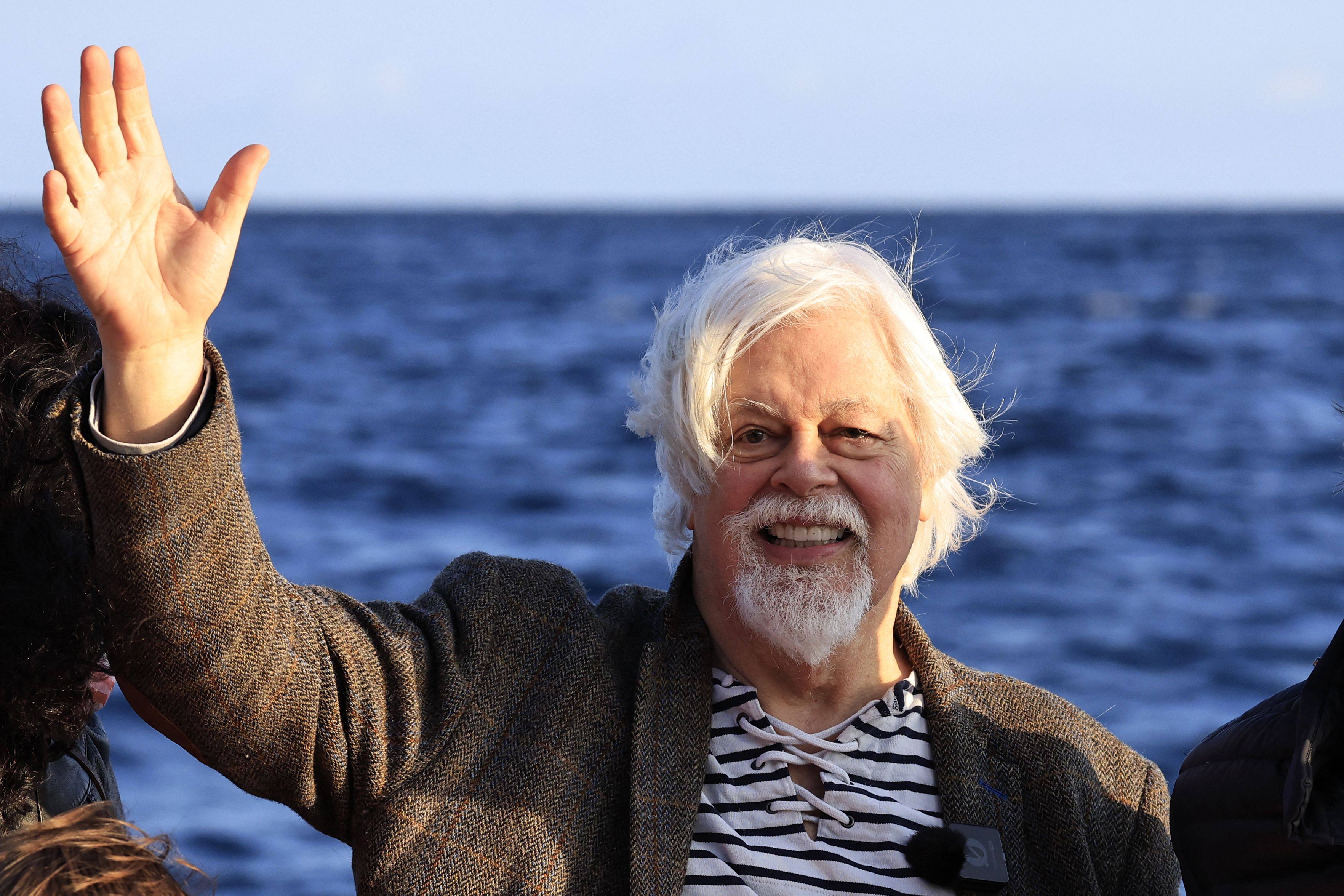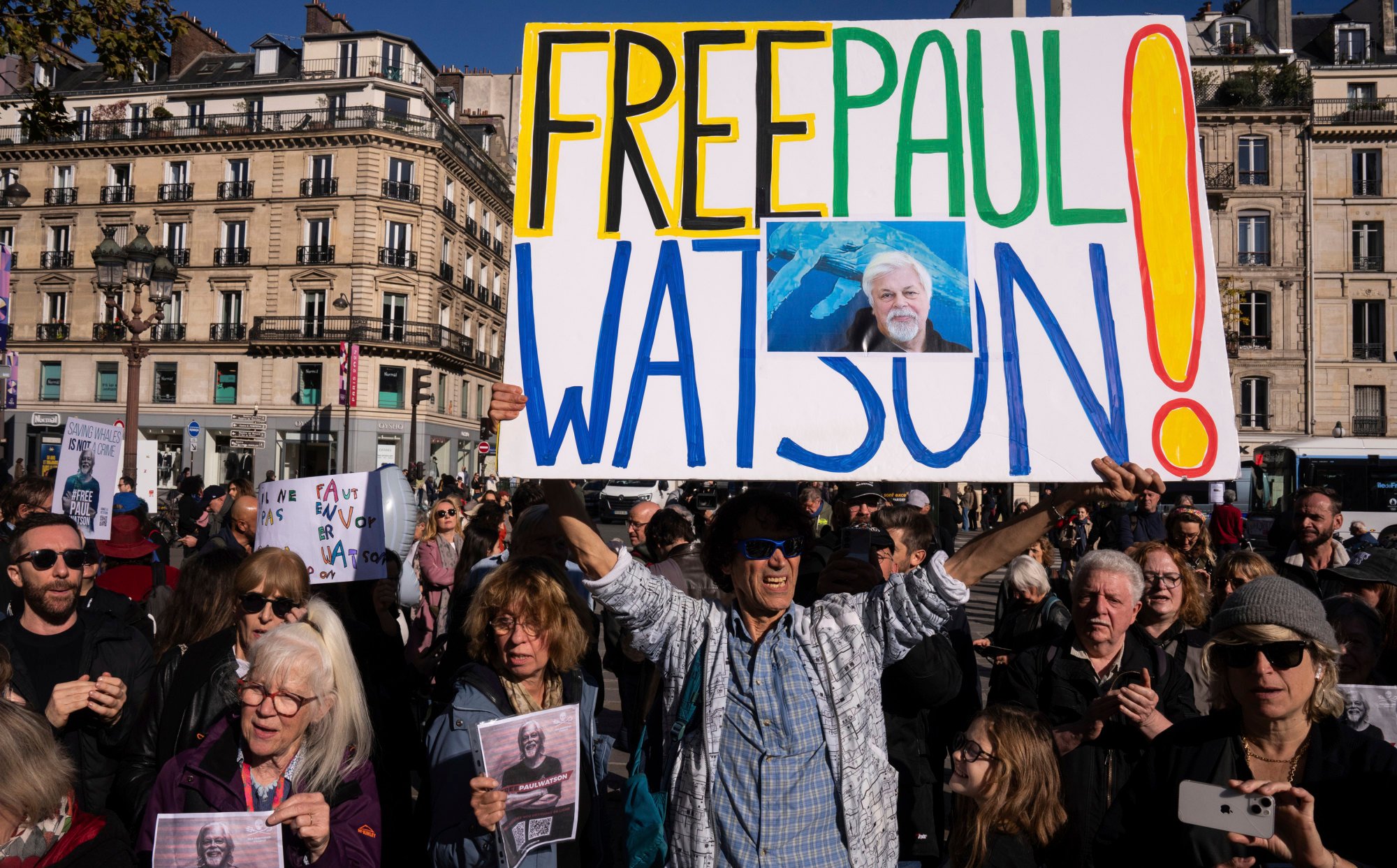Whale of a row in Japan as Interpol drops activist’s red notice
Tokyo’s foreign ministry has vowed to continue requesting the Sea Shepherd founder’s extradition to Japan

Interpol’s decision to drop a decade-old red notice against Paul Watson, the outspoken founder of marine conservation group Sea Shepherd, has sparked outrage in Japan, with critics accusing the international police agency of bowing to Western bias and undermining justice for alleged attacks on Japanese whalers.
Interpol announced on Tuesday that it had removed the red notice – a non-binding request for the arrest and extradition of a wanted individual – after a review by its independent Commission for the Control of Files, which found the request raised concerns about political motivations and potential rights violations.
Watson, 74, had been wanted since 2012 after Japan requested the red notice over clashes in Antarctic waters two years earlier, when his group hurled rancid butter at whaling vessels and allegedly interfered with harpoon operations.
The Canadian-American was initially taken into custody in the German city of Frankfurt that same year but was later released, despite the red notice being in effect.
Hopes of a successful extradition were revived when Watson was arrested in Greenland last July. Japanese officials were optimistic that Denmark – which governs Greenland and also oversees pro-whaling territories like the Faroe Islands – might be more amenable to handing him over.

But those hopes were dashed in December when the Danish government announced it would not comply with Japan’s request and released Watson from custody, citing the lack of assurances that his time in detention in Greenland would count towards any future sentence.
At the time, Chief Cabinet Secretary Yoshimasa Hayashi indicated his disappointment at Copenhagen’s decision, saying in a press conference: “This anti-whaling activist caused damage to Japan’s whaling industry and an arrest warrant was issued based on the law and the evidence. We will continue to take the necessary actions.”
Watson called Interpol’s move an end to the Japanese whalers’ “vendetta” in a statement on Tuesday, according to Agence France-Presse.
In a statement issued to This Week in Asia on Wednesday, the foreign ministry in Tokyo said it disagreed with Interpol’s decision to remove the notice and emphasised that an arrest warrant issued by a Japanese court was still valid.
“The case is a matter of law enforcement and has nothing to do with suspect Watson’s views on whaling. We have repeatedly conveyed this view to Interpol. It is extremely regrettable that a red notice for this person, who has long been on the run from investigative authorities, has been removed, despite our country’s claims based on the law and evidence,” the ministry said.
“Nonetheless, the arrest warrant issued by a Japanese court is valid and solid. The government of Japan will continue to request that the relevant countries detain and extradite him to Japan.”
Public anger
While the official response has been measured, public reaction has been far more pointed.
“By linking [the red notice] to whaling, they gained people’s sympathy, and as a result, the crime of attacking Japanese ships was allowed to go unpunished,” read one comment linked to a Jiji News article. “We request that the government take a firm stance against violence against Japanese people on the high seas.”
Unhandled type: inline-plus-widget {“type”:”inline-plus-widget”}
Another described Watson as an “Interpol-certified terrorist”, while other posts demanded that Tokyo withdraw support and funding for Interpol and international courts as well as take “countermeasures” against Denmark.
Izumi Tsuji, a professor of the sociology of culture at Tokyo’s Chuo University, says Japanese people are quick to take offence when outsiders criticise their culture and traditions.
“Whaling has been an important part of Japanese culture since medieval times, when fishermen would hunt in coastal waters,” he told This Week in Asia. “The whale was an important part of people’s diets and every part of the catch was used.”
“Now, people rarely eat whale meat – although I do sometimes – but when the anti-whaling movement began to grow in the West in the 1980s, Japanese people became very protective of the traditions and culture surrounding whaling here,” he said. “In short, we don’t like being told what to do by other countries that do not share our traditions.”
Tsuji also believes that Watson should be handed over to Japanese authorities to face trial because he committed criminal acts and should therefore face criminal prosecution.
However, he added that anti-whaling groups would more quickly and effectively achieve their aim by doing nothing.
“Young people in Japan never eat whale and it’s not often available in the supermarket. So many people have never tasted it and have no interest in doing so,” he said.
“If the campaigners were wise, they would stop making the issue bigger and people in Japan would simply stop buying whale meat entirely, sooner or later.”